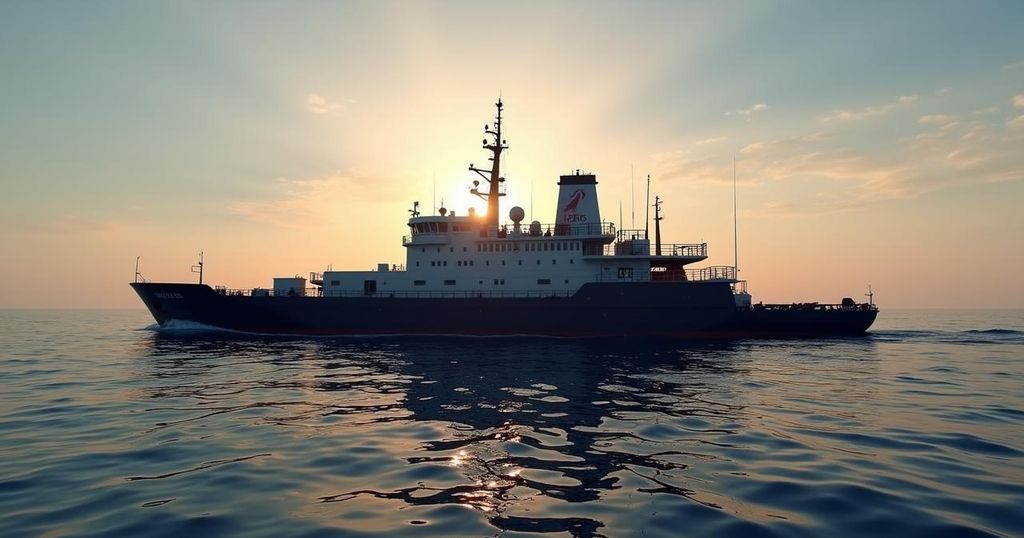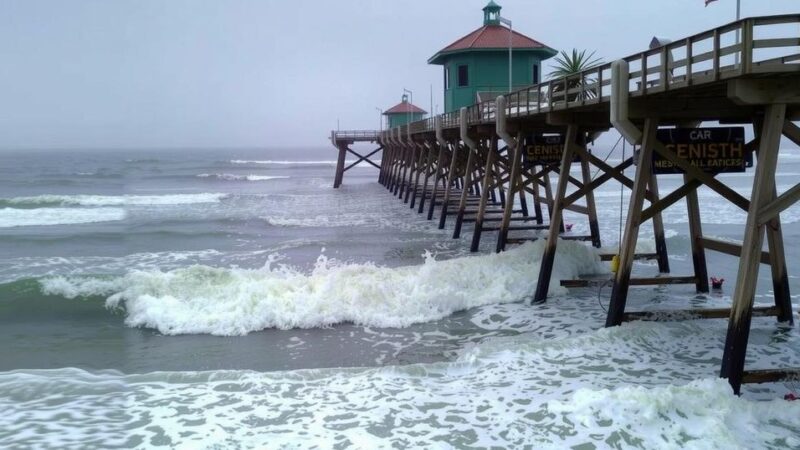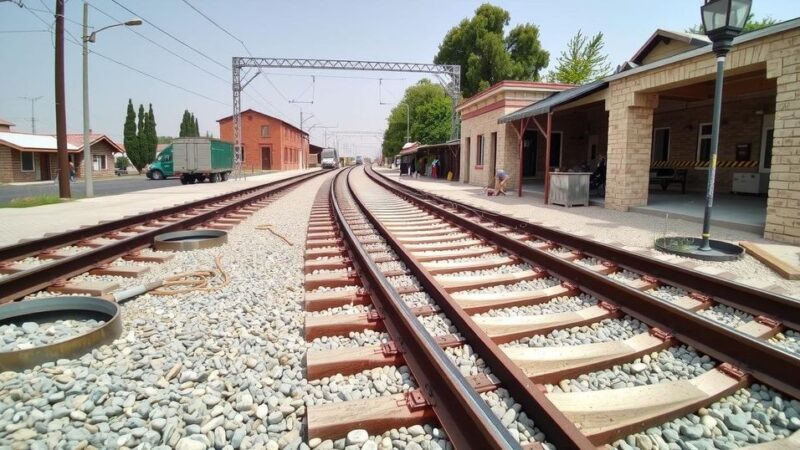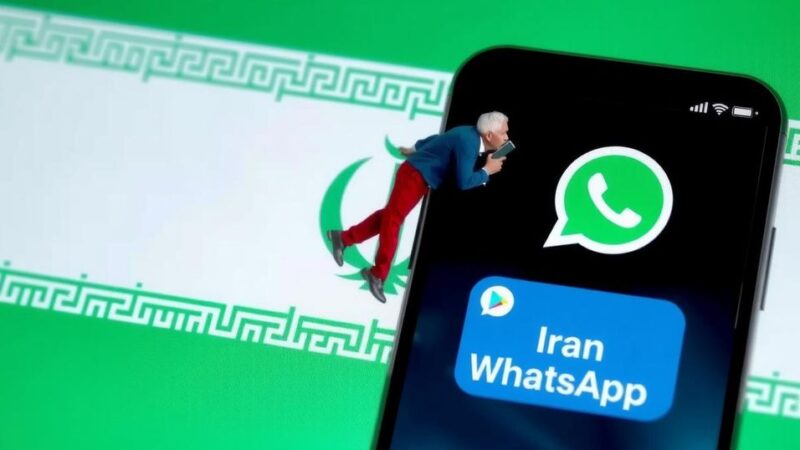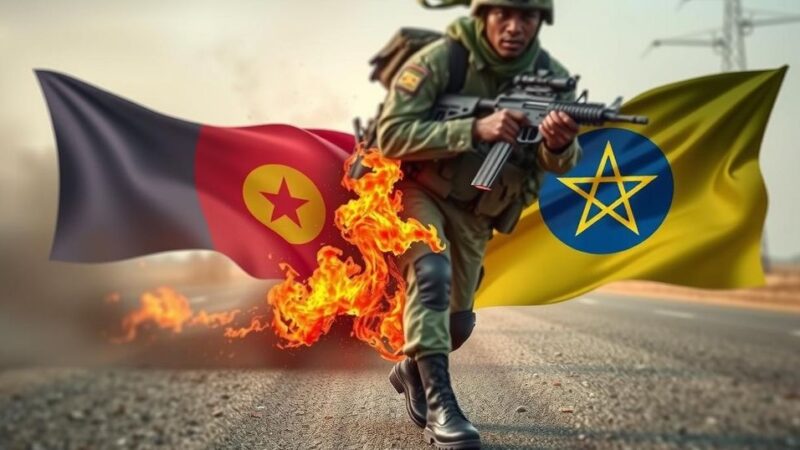Turkish President Recep Tayyip Erdoğan presided over the send-off of the Oruç Reis seismic research vessel to Somalia, following a significant agreement for energy exploration between Turkey and Somalia. Accompanied by naval frigates for protection, the mission aims to conduct 3D seismic surveys over a seven-month period, reinforcing Turkey’s strategic interests in the Horn of Africa while continuing its complex relationships in the Eastern Mediterranean region.
On October 5, 2024, Turkish President Recep Tayyip Erdoğan officiated the send-off ceremony for the Oruç Reis, a domestically developed seismic research vessel, as it embarked on a significant mission to Somalia. This deployment follows a vital agreement made in March between Turkey’s Ministry of Energy and Natural Resources and Somalia’s Ministry of Petroleum and Mineral Resources. This agreement encompasses exploration rights for both onshore and offshore blocks within Somalia’s jurisdiction. The Oruç Reis is accompanied by two G-class frigates, TCG Gediz and TCG Gokova, which will provide essential naval protection during the research mission. These frigates are modernized versions of the Oliver Hazard Perry-class and have undergone substantial upgrades to enhance their operational capabilities, incorporating advanced systems such as the GENESIS combat management system. This latest mission reinforces Turkey’s strategic interests in the Horn of Africa, where it has secured exploration rights in a substantial maritime zone encompassing 15,000 square kilometers off the Somali coast. The operations are anticipated to span approximately seven months, during which the Oruç Reis will conduct 3D seismic surveys across multiple licensed areas. The data collected will be crucial for identifying potential drilling locations for future energy extraction endeavors. Furthermore, the deployment of Turkish naval forces not only emphasizes Ankara’s dedication to protecting its energy interests but also signifies its increasing influence in Africa, particularly in regions impacted by security threats such as piracy or regional strife. This operation is a continuation of Turkey’s broader ambitions to access energy resources beyond the Mediterranean, where the Oruç Reis previously engaged in contentious exploration activities.
The Oruç Reis vessel has been embroiled in several controversial exploration efforts, primarily within the Eastern Mediterranean region, where Turkey’s pursuit of energy resources has led to heightened tensions with neighboring nations such as Greece and Cyprus. The core of the disputes arises from competing claims over Exclusive Economic Zones (EEZs) in the Eastern Mediterranean, characterized by rich energy reserves. Beginning in 2020, Turkey’s controversial operations around the Greek island of Kastellorizo have intensified these tensions, as the island is claimed by both nations under differing interpretations of maritime boundaries. Turkey argues against the full EEZ claims of islands, a stance that contrasts sharply with Greece and Cyprus, who adhere to the principles outlined in the United Nations Convention on the Law of the Sea (UNCLOS). Notably, Turkey is not a signatory to UNCLOS and espouses a more flexible approach to maritime boundaries, asserting its interests amidst these regional controversies. This backdrop has resulted in significant tensions, marked by naval deployments, diplomatic protests, and calls for European Union sanctions against Turkey. Incidents of near-miss military confrontations between Turkish and Greek naval forces have also occurred, prompting NATO to intervene to establish mechanisms aimed at preventing unintended clashes between the two NATO member states.
The deployment of the Oruç Reis seismic research vessel to Somalia signifies a notable step in Turkey’s ongoing efforts to expand its energy exploration ambitions, particularly in regions fraught with security challenges. The accompanying naval frigates highlight Ankara’s commitment to safeguarding its strategic interests amid potential risks. This mission not only reflects Turkey’s growing influence in Africa but also underscores the nation’s determination to secure vital energy resources beyond its traditional maritime boundaries, amidst ongoing geopolitical tensions in the Eastern Mediterranean.
Original Source: www.armyrecognition.com

